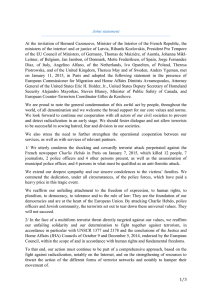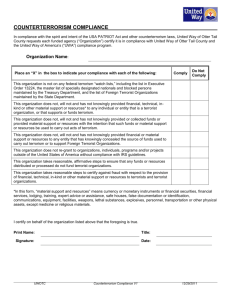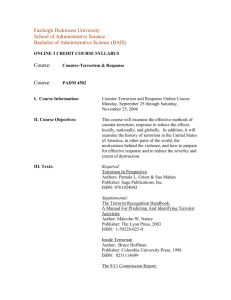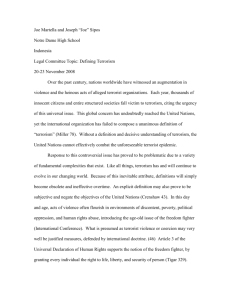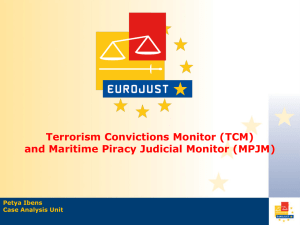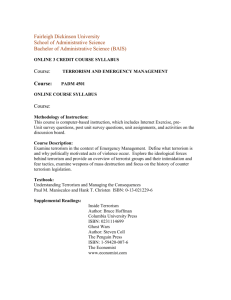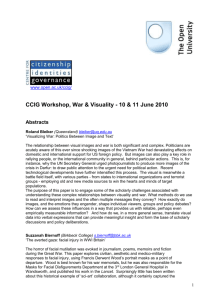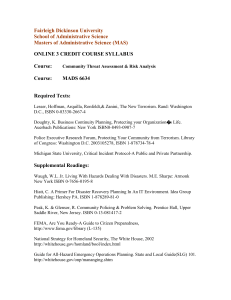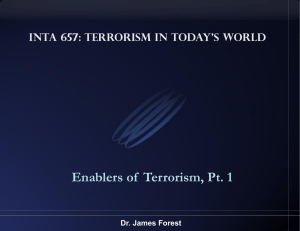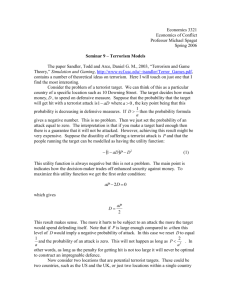5_Radicalization
advertisement
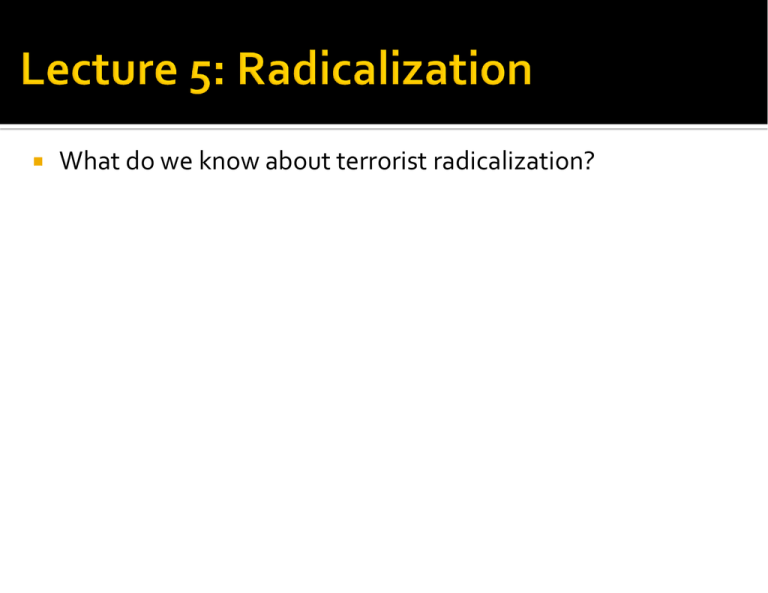
What do we know about terrorist radicalization? Individual Group Mass How does a government impact the radicalization process at the individual, group and mass levels? What strategies are employed by terrorist groups to mobilize individuals to choose political violence over alternative means? How do relatively ordinary, rational individuals justify their involvement in terrorist organizations and the violence they commit? What role do ideological entrepreneurs play in constructing a social reality? What framing devices are utilized by these ideological entrepreneurs? (Mass level: reaction, dehumanization . . .) Remember ideological themes: Guevara – Vanguard Fanon – Violence as necessary Marighella – Urban warfare According to Eidelson & Eidelson, What are 5 beliefs that propel groups toward conflict? According to Eidelson & Eidelson, What are 5 beliefs that propel groups toward conflict? - Superiority Injustice Vulnerability Distrust Helplessness p. 188 – Importance of in-group validation . . . - Where in the world of terrorist ideologies do we see these themes represented? - 4 of these could be classified as “grievances . . .” - Superiority breeds entitlement; unmet, becomes grievance . . . Andrew Kidd and Barbara Walter (2006): “Five political objectives with enduring importance” - Regime change Territorial change Policy change Social control Status quo maintenance - Remember: terrorism as driven by desire for power to make (or sometimes prevent) change What is “The Logic of Ethnic Terrorism”? What do ethnic terrorist groups have in common? How do they differ from other terrorist groups? What does Byman suggest a country should do, and not do, when dealing with ethnic terrorism? A central proposition: Terrorism is the direct result of an individual’s choice influenced by a combination of factors and perceptions about the world around them “The roots of terrorist activity lie in the mind . . . ” - Gordon McCormick, 2003 We need to understand: The critical importance of perception, identity, beliefs The main elements of the relationship between governance and terrorism The role that economics, psychology, sociology or other grievances play in motivating terrorist groups The ways, means, contexts for ideological resonance Countering radicalization requires that we: Identify places of ideological interpretation, especially where youth might be exposed to radical ideas (clubs, youth groups, video games, Internet, religious or educational places, etc.) establish a presence inside the places of radicalization in order to reach the audiences that are being radicalized from within; identify interpreters that are recognized as authoritative, credible and commanding of obedience develop the ability to discredit radical ideas as unsupported by core values; undermine legitimacy Identify and support countervailing influences within societies, communities, families, and other institutions Think about how you have formed your view of the world, and your place within it. Who in your life has influenced your perceptions the most? What if your “influencers” were considered “extremists” by others”? Would you know?
